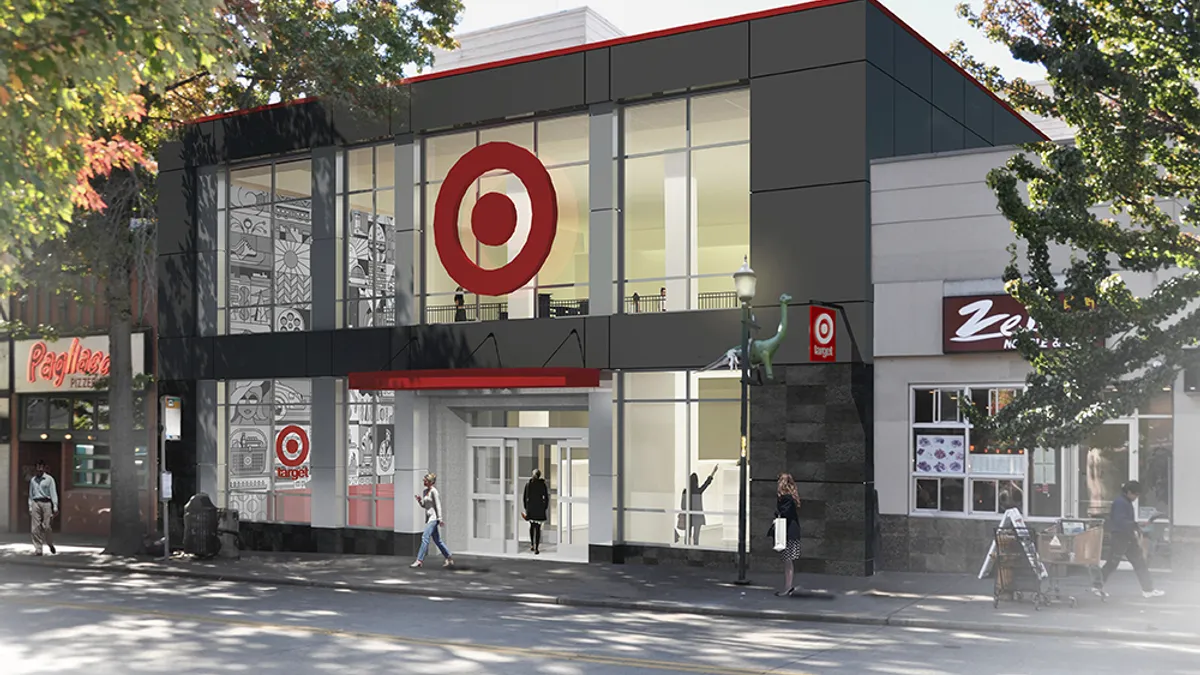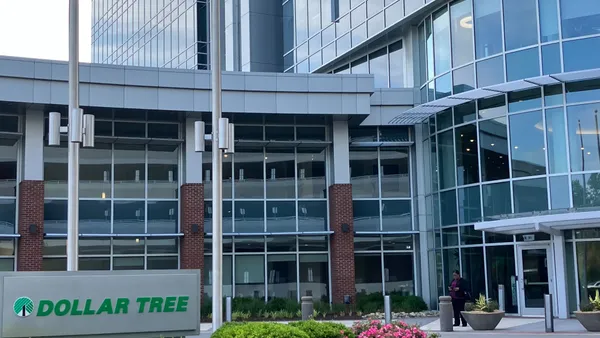Dive Brief:
- Target's movement of digital fulfillment from distribution centers to stores resulted in a 40% reduction in costs, according to Target CEO Brian Cornell. "When we go from an upstream DC to some of our same-day fulfillment offerings, like Order Pickup and Drive Up, we see a 90% reduction in costs," Cornell said on the company's first quarter earnings call.
- The retailer plans to fulfill more than two-thirds of e-commerce orders from its stores this year, Chief Operating Officer John Mulligan said on the call. Target is remodeling about 300 stores per year and expects to have completed 1,000 store remodels by the end of the year to "reconfigure space in operations to support all of our new digital fulfillment options," Mulligan said.
- Target executives disputed analyst concerns of store fulfillment resulting in more split shipments. "Even though store fulfillment continues to grow rapidly, the rate of split shipments this year is running lower both in our stores and in total compared with last year," Mulligan said.
Dive Insight:
Target executives took on a seemingly defensive tone on their Wednesday morning call with analysts.
"We continue to hear questions about the long-term viability of keeping our stores at the center of fulfillment," Mulligan said. "Our answer is [emphatic], we are confident that this is the best long-term solution for Target."
The retailer's surety likely lies in the dramatic cost reductions it has seen as a result of store and same-day fulfillment for e-commerce orders. Not only has Target reduced fulfillment costs by 90% for same-day offerings, but these fulfillment options drove more than half of the retailer's digital sales growth in the first quarter, Cornell said.
Target's same-day fulfillment options include Drive Up — where online or mobile orders are brought to the customer's car — in-store order pickup and its partnership with Shipt for same-day delivery service. "Target now offers more digital fulfillment options across more of the country than anyone else in retail," Mulligan said.
Executives claimed store fulfillment creates high levels of customer satisfaction and reliability — a growing priority for many retailers as they put consumers at the center of their supply chains.
As Target continues its store-centric fulfillment model, it will require strong inventory management practices to ensure the right balance of SKUs are available in stores to meet consumer demand. Mulligan said the retailer is developing an inventory planning and control system to "deliver increased precision" on inventory.














